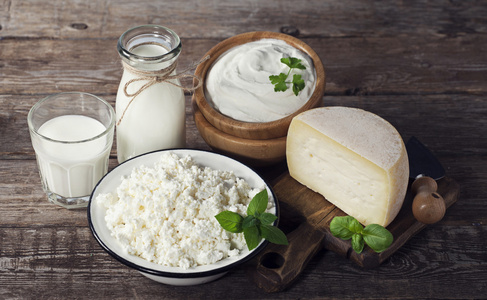
 CONTACT
CONTACT
- Linkman:Linda Yao
- Tel: +8618231198596
- Email:linda.yao@dcpharma.cn
- Linkman:CHARLES.WANG
- Department:Overseas
- Tel: 0086 0311-85537378 0086 0311-85539701
Nisin in dairy products
TIME:2023-12-12
Nisin is commonly added to dairy products for its antimicrobial properties, which help control the growth of spoilage and pathogenic bacteria.The addition of nisin serves several purposes in the production and preservation of dairy products,including extended shelf life,control of listeria monocytogenes,preservation without heat treatment,reduced dependence on chemical preservatives,control of clostridium spp.,enhanced safety in fermented products,control of gas-producing bacteria,ect.
Nisin inhibits the growth of Gram-positive bacteria, including some spoilage organisms commonly found in dairy products.By preventing the proliferation of these bacteria, nisin extends the shelf life of dairy products, reducing the risk of spoilage.
Listeria monocytogenes is a pathogenic bacterium that can cause foodborne illnesses.Nisin has been found to be effective against Listeria monocytogenes, making it valuable in enhancing the safety of dairy products.
In some cases, the addition of nisin allows dairy products to be preserved without the need for extensive heat treatment. Heat treatment can affect the flavor, texture, and nutritional content of dairy items.Nisin provides an alternative preservation method while minimizing the impact on product quality.
Nisin offers a natural and biologically derived alternative to synthetic chemical preservatives. Consumers are increasingly interested in natural and clean-label ingredients, and nisin aligns with these preferences.
Nisin has activity against certain Clostridium species, which are spore-forming bacteria that can cause spoilage and product defects in dairy items.
In fermented dairy products, such as yogurt and cheese, the addition of nisin can enhance safety by preventing the growth of undesirable bacteria and ensuring the dominance of lactic acid bacteria responsible for fermentation.
Nisin can help control the growth of gas-producing bacteria in dairy products.Excessive gas production can lead to defects in texture and appearance.
The use of nisin in dairy products is regulated, and its application levels must comply with local food safety regulations.The specific benefits of nisin can vary depending on the type of dairy product, the production process, and the desired characteristics of the final product.
- Tel:+8618231198596
- Whatsapp:18231198596
- Chat With Skype







